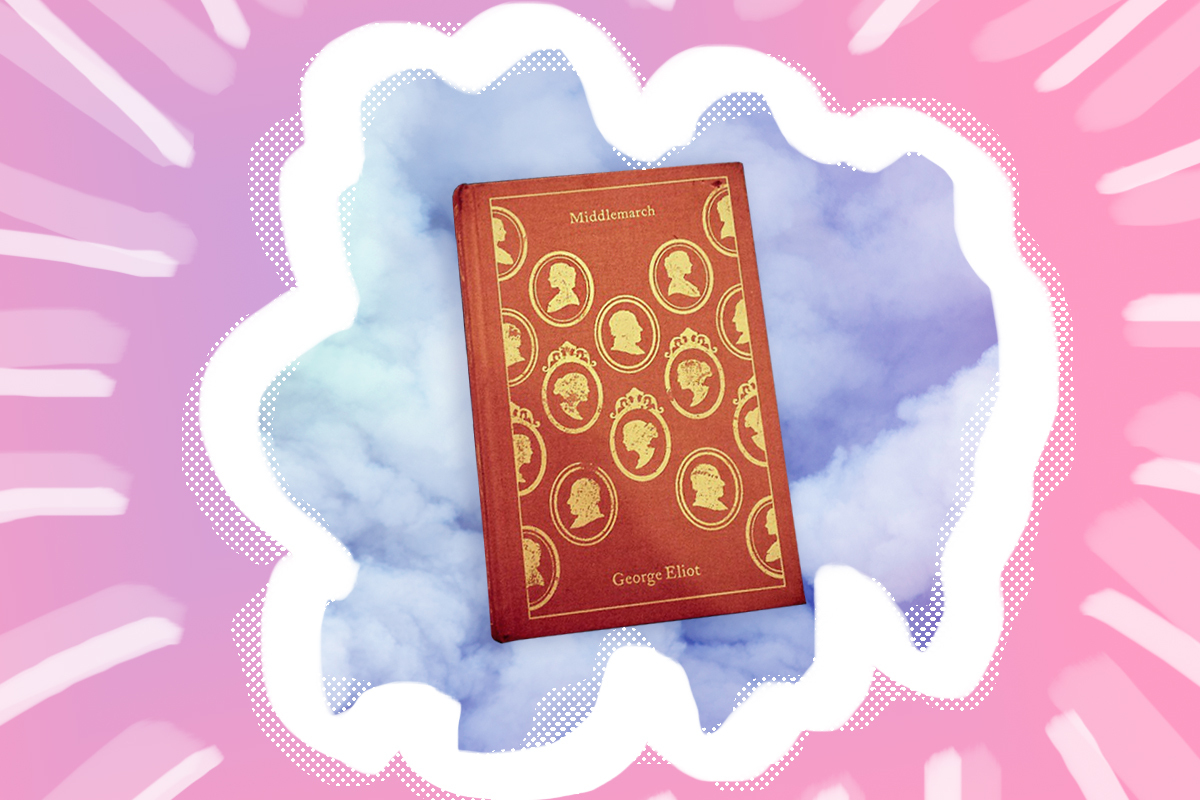Almost exactly seven years ago, I cracked open my copy of Middlemarch by George Eliot for the first time. It was my last semester of college and I sat cross-legged on the town green, dodging frisbees whirring past my head. It smelled of Ohio spring — that elusive sweet scent that accompanies a respite from the snow.
For weeks, I carried the 800-page tome around as I trudged across campus. Middlemarch was in my backpack at job interviews and strewn across my dorm room floor as I submitted job applications. I did not know what the next chapter of my life would hold, but until then, I had Middlemarch to depend upon and keep me company.
Now, in this time of unprecedented uncertainty, I’ve turned to Middlemarch again. When I open my worn copy of the 1871 novel, the spine breaks. For the past three weeks, I have read a chapter aloud each night, getting lost in the eponymous fictional village in the 1830s.
A study of English provincial society, Middlemarch follows the lives of the village’s many inhabitants whose fates are entangled in unexpected ways. And although I first picked up Middlemarch when it was assigned in college, the book is populated with a multitude of characters who drew me into their world: Tertius Lydgate, the idealistic country doctor who becomes entangled in an unwanted relationship; Rosamond Vincy, the mayor’s daughter who hopes to marry into wealth and escape provincial life; Reverend Edward Casaubon, the aging scholar; and Dorothea Brooke, a 19-year-old orphan living with her uncle, who is prone to “excessive religiousness” and longs to make the world a better place.
In the first line of the book, we are introduced to Dorothea: “Miss Brooke had that kind of beauty which seems to be thrown into relief by poor dress.”
Dorothea is all-consumed by her fervent Christian belief — from her plain dress to her desire to give up horseback riding because she enjoys it in a “pagan sensuous way.” Yet almost everything she does is an attempt to do good in the world; no one else in Middlemarch has the same altruistic drive that she has. When I first read Middlemarch, I was drawn to Dorothea, perhaps because we were close in age. Now, I notice her foibles, but I still identify with that desire to better the world.
As a Jewish woman, I did not anticipate identifying with a fictional character whose identity is so wrapped up in her Christianity. But despite our differences in religion, I saw a similarity in our values. The reason why I continue to identify with Dorothea is because she, in her own way, is trying to live of a life of tikkun olam, or repairing the world. If Dorothea were to take an online quiz on her love language, she would get performing acts of service. Yet, she is constantly thwarted. She has grandiose ideas of building new cottages for the tenant farmers on her uncle’s estate, but her uncle has no intention of implementing her plans. Even Dorothea’s younger sister Celia sees the improbability of the cottages and calls Dorothea’s plans a “favorite fad.” Nevertheless, she continues trying to help others, even if she does not know how best to assist.
“What do we live for, if it is not to make life less difficult to each other?” Dorothea asks near the end of the book. Each time I read Middlemarch, I know Dorothea will grow and mature, and so will I. As I read George Eliot’s words aloud, I hear Dorothea’s uncle’s inane and repetitive patterns of speech and Casaubon’s convoluted turns of phrase that barely mean anything at all. The characters, already alive in my head, are now given a voice.
For 87 chapters, I am immersed in this Victorian world — a world that is so unlike my own, but in other ways exactly like my own. Each character is connected in unexpected ways, their lives an entangled web. It may have taken a pandemic for our society to realize that all of our lives are knotted together, and that our actions touch countless people, but George Eliot had known it all along. I take comfort in that.
This time, when I finish reading Middlemarch, it will be the height of summer. I may be sitting inside on my green couch, air conditioning rustling around me, or perhaps I will be in my yard under the leafy branches of a magnolia tree, listening to the far-off droning of a lawn mower. I do not know what the world will look like then, but at least I’ll still have Middlemarch.
How I Keep Calm is our series featuring different ways people manage anxiety. If you have a pitch for this column, please e-mail submissions@heyalma.com with “How I Keep Calm” in the subject line.




